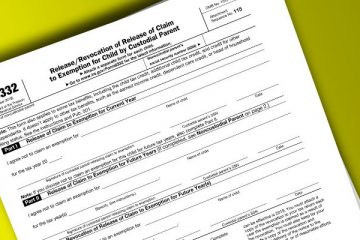Nonresident taxpayers file an annual income tax return by using Form 1040-NR. Nonresident aliens typically file their tax returns in the United States with the help of Form 1040-NR. If a taxpayer fails the significant presence criteria or does not possess a green card, they are regarded as a nonresident of the United States.
For the purpose of submitting their income tax returns, nonresident aliens must utilize IRS Form 1040-NR. Individuals who represented a deceased person who would have had to submit a form 1040-NR or a trust or estate that was needed to file a form 1040-NR are qualified to file using this form. They must also have been nonresident aliens engaged in a specific business or trade within the United States of America.
Table of Content
Who Should File Form 1040-NR?
Non-citizens and holders of green cards who were substantially present in the country during the tax year and had income from the United States may be required to file this form.
In general, that would include a foreign resident who has been present in the country for more than 31 days in the current year and more than 183 days over the course of the two years prior. About a third of the days from the prior year are counted, and only a sixth of the days from the year before that.
Reading the instructions is important to calculate the number of days spent in the US and to find out if there are any exceptions to the requirement to file the form.
If you work or have income from sources within the United States, such as rental property income, you must submit tax form 1040-NR if you are a nonresident alien.
Also, if you were paid wages that are subject to income tax, you might need to submit Form 1040-NR. Grants for scholarships or fellowships that are taxable are included.
Because of visa restrictions, it is crucial for nonresident aliens to abide with American tax rules. Receiving a return, however it is a further incentive to file annually. If you overpaid your U.S. taxes as a nonresident alien, you can only get a refund by filing your return using Form 1040-NR.
What Goes on Tax Form 1040-NR?
Your personal information such as your name and address will be recorded on IRS Form 1040-NR, like other tax forms. A unique number will also be necessary. If you meet the requirements then enter your Social Security number (SSN). Use an Individual Taxpayer Identification Number if you are not eligible for a Social Security Number (ITIN).
If you are a nonresident alien, you must utilize the 1040-NR to record your income from sources in the United States. You may record the following types of income on Form 1040-NR in addition to wages, salaries, or tips:
- Payouts both Regular and Qualifying
- Grants for Fellowships and Scholarships
- Losses or Gains in Capital
- IRA, Pension, or Annuity Income
- Revenue from Farms or Real Estate
You won’t have to submit Form 1040-NR to the IRS as a nonresident alien if you have income that was earned outside of the United States.
What is The Difference Between 1040 and 1040-NR?
To file a Form 1040, you must be a resident. Form 1040-NR tax returns should be used by nonresidents who pass the significant presence condition.
Nonresidents only disclose their income that is earned within the United States, as opposed to residents who must record all of their worldwide income for tax purposes. There is no minimum income requirement for nonresidents to file either.
Do Expats Have to File 1040-NR?
When filing as dual-status filers, as defined by the IRS, expatriates and nonresident aliens may be required to submit Form 1040-NR in addition to Form 1040-C. For instance, a nonresident alien who enters the country with the intention of establishing permanent residency must file Form 1040-NR until dual residency is granted. Until they establish a base abroad, expats who are not yet legally residing elsewhere must fill out both forms.
What Happens if You Do Not File 1040-NR?
The penalties are essentially the same as those associated with Form 1040 for late tax filing and payment by US citizens. Therefore, any excess withholding that is not filed effectively becomes forfeited.
The Federal Revenue Service will compute penalties and interest based on the amount of taxes you owe. The IRS may give you interest on any refunds that are delayed if you have any. There is no fine for filing a late return if you received one. Penalties are based on the total amount owed. No payment is necessary, hence there is no penalty.
The IRS will determine extra fines and interest if your late tax return has a balance that is still owed.
Three distinct penalties apply:
Penalty for Not Filing:
Based on the amount of time between your tax return’s due date (including any extensions) and the day you actually filed your tax return, the failure-to-file penalty is determined. Up to a maximum penalty of 25%, there is a penalty of 5% for each month the tax return is late. The percentage refers to the amount of tax due as reported on the tax return. Simply double your remaining balance by 25% to determine your failure to file penalty if your tax return is more than five months overdue.
Non-Payment of Penalty:
The amount of tax you owe is used to determine the failure-to-pay penalty. For each month that the tax is not fully paid, there is a 0.5% penalty. The penalty for failure to pay has no upper limit. The original filing date of April 15th served as the starting point for the calculation of the penalty until the entire sum is paid.
Interest:
Based on how much tax you owe, interest is computed. Three months pass between rate changes. 4% annually is the IRS interest rate for unpaid taxes as of right now. Every day that your outstanding balance is not fully paid results in a calculation of interest. IRS interest rates fluctuate and are decided upon quarterly.
Tips and Warnings for Form 1040-NR
- When to File: For people who were employed in the US and received earnings that had income tax withheld from them, the Form 1040-NR must be submitted by April 18th, 2016 at the latest. The deadline to file is the 15th day of the fourth month after the end of the tax year for nonresident alien trusts or estates with offices in the United States of America, and the 15th day of the sixth month after the end of the tax year for nonresident alien trusts or estates without offices in the country.
- Where to File: For personal returns, send them to the Internal Revenue Service in Austin, Texas, and for estate and trust filings, send them to the Federal Revenue Service in Cincinnati, Ohio, according to the Department of the Treasury. For both individuals and estates and trusts, the mailing should be made to the Internal Revenue Service, P.O. Box 1303, Charlotte, North Carolina 28201-1303 USA, if a payment will be enclosed.
- Tax preparers in the US should carefully read the 30 pages of instructions before filling out this form rather than assuming that the regulations are the same as those for form 1040.
- The income tax form for U.S. citizens and permanent residents who live abroad is Form 1040-NR, and it must be submitted after the expatriate’s formal departure from the U.S. as a citizen or resident. Taxpayers who are simultaneously citizens or permanent residents of the United States and residents of another nation (such as Canada) will not file this form during that time. This form must be utilized if a taxpayer is obligated to pay taxes on income derived from the United States for 10 years after expatriating.
- The lengthy Form 1040-C is necessary for persons who had U.S. taxable income in the prior and current years, which would typically include departing expats. To get a “sailing or departure permission,” a document that certifies that the taxpayer is no longer a citizen or permanent resident of the United States, a special form of the 1040 must be filed.
- A taxpayer will be regarded as having dual status for the year they leave the country and will need to submit both a Form 1040-C and a Form 1040-NR. For nonresident aliens who come to the country in order to obtain permanent residency, the same rule is applicable.
We hope that the information above will be helpful to you when you file Form 1040-NR. If you have any issues, give complete control of your investment taxes if you have to a tax expert. Our tax experts will offer Live Full Service and are available to help you with anything. In addition to allowing you to file your own taxes, we will guarantee you comprehensive service. Your investment tax concerns are handled by us. File with confidence because we are the best tax preparation company.
Frequently Asked Questions
When the Form 1040-NR is due?
On April 15 or 4.5 months after the end of the tax year, nonresident immigrant workers who received pay in the country must file their returns or request an extension.
Till June 15th, or 6.5 months after the tax year, foreign individuals with income other than wages subject to withholding are exempt from filing. On Form 4868, you can ask for an extension.
How long does it take to Prepare Form 1040-NR?
Depending on the intricacy of the taxpayer’s income and deductions, the 1040-NR can take an hour to a week or more to complete.
The IRS instructions for this form state that it typically takes eight hours to prepare. Due to the requirement of studying the instructions and the complexity of comprehending the language of the U.S. tax system, a foreign person attempting to submit the form without assistance from a U.S. tax professional is likely to take substantially longer.
What Deductions can I do on my 1040-NR?
Schedule A Form 1040-NR is Itemized Deductions, which are specifically for Taxes You Pay, State and Local Income Taxes, Donations to U.S. Charity, Casualty and Theft Losses, Work Costs and certain Other Business Expenses, and Other Miscellaneous Deductions.
How much money you must make to File a 1040-NR?
To submit a 1040-NR Form as a non-resident alien, there is no minimum income requirement. On this form, you should only include income with a U.S. source. But before investing in the US, foreigners should ascertain whether their trips there qualify them as tax residents.
What Happens if a 1040-NR is Submitted Rather than a 1040?
You will need to modify your return if you filed a Form 1040, 1040A, or 1040EZ by mistake and you should have filed a Form 1040-NR or 1040NR-EZ, or vice versa.




